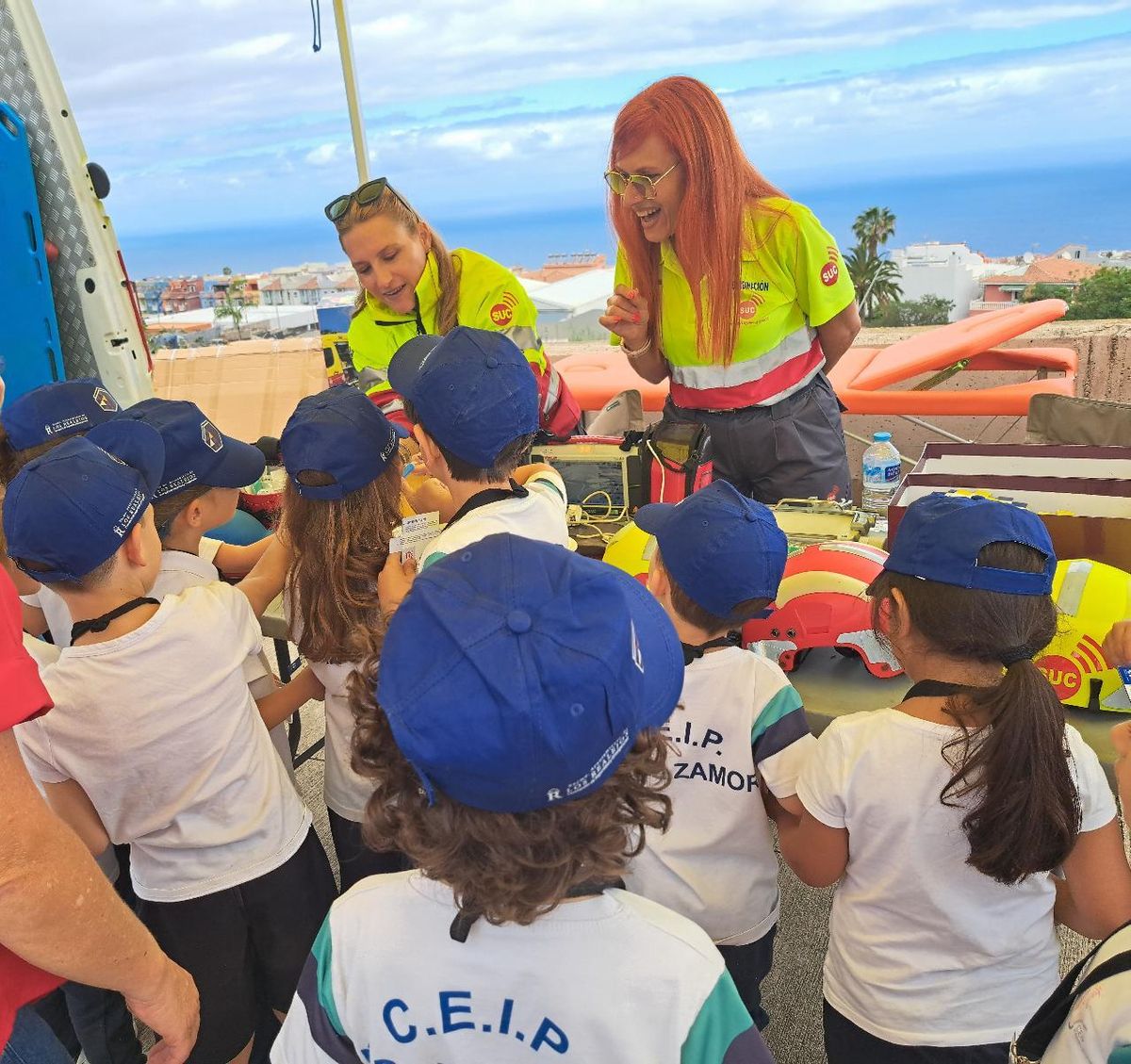More than 700 students in Canary Islands were able to learn about the operations of the Canary Islands Emergency Service (SUC), under the Ministry of Health, and were trained in first aid and cardiac massage during the 2023-2024 school year that has just ended. The SUC training program was aimed at both Primary and Secondary school students, medium-grade vocational training courses, and university students in the health field.
To achieve this goal, healthcare coordinators conducted school workshops at fourteen educational centres in Tenerife and Gran Canaria where 470 students were trained in first aid and cardiac massage.
The students were taught, through a practical approach, about the work carried out by the SUC, both in the operational rooms of 112 Canary Islands, as well as in the different types of ambulances, helicopters, or the medicalised plane.

Primary school students get acquainted with the SUC / LP / DLP
In the final cycle of Primary Education, SUC healthcare coordinators provided first aid tips to 5th and 6th grade students, who gained basic knowledge on how to act until the arrival of medical resources and specialised personnel, remembered how to prevent accidents, and practised how to alert 112.
Furthermore, over 300 Secondary school students were instructed on how to perform effective cardiac massage, an essential technique for saving lives in case of cardiac arrest; how to act in cases of choking or drowning at sea; attending to a person experiencing seizures or loss of consciousness; and how to respond to a traffic accident, among other scenarios.
A total of 99 students from the Technical Emergency Health Services (TES) vocational training cycles received a talk focused on managing health emergencies, coordinating resources, and the operations of Non-Urgent Health Transport (TSNU), while students from other integrated vocational training centres received specific talks on air medical transport, telemedicine, or first aid for students with special educational needs, among others.
This training activity is complemented by a visit to the educational centre by a Rapid Intervention Vehicle (VIR) where students get a close-up look at the resuscitation and circulatory and ventilatory support equipment available in this type of vehicle.
Visits to healthcare resources
[–>
On another note, the SUC ambulance base in Valverde was visited by students from IES Garoé; the base for disaster resources and care for multiple victims in Tenerife received students from various vocational training programmes; and the ambulances based in San Juan de la Rambla and Arico, in Tenerife, and based in Gáldar and Telde, in Gran Canaria, visited educational centres in the municipality and participated in health promotion events.
[–>
In this context, nearly 200 students were able to witness not only the urgent and non-urgent health transport resources but also the Mobile Disaster Units (UMCAT) and Immediate Health Response Teams (ERSI).
















